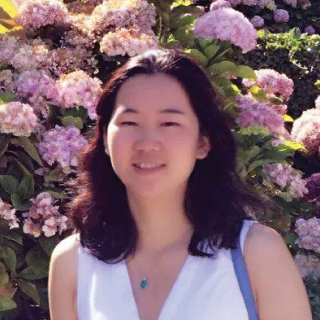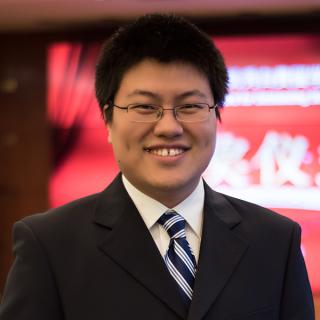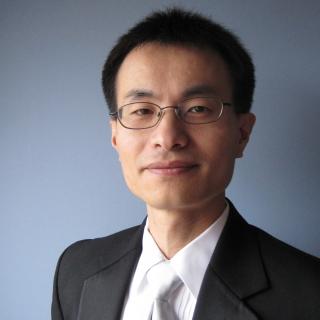Alumni

Anthony Abel is a Ph.D. student in Chemical Engineering in the Clark Laboratory at UC Berkeley. Previously, he earned his B.S. in Chemical Engineering and M.S. in Materials Science at Drexel University in Philadelphia, PA, where he developed solution deposition techniques for inexpensive semiconductor materials. He has previously worked for the National Renewable Energy Laboratory, where he designed reactors for the sustainable production of hydrogen via photoelectrochemical water splitting.
Anthony’s research interests lie at the intersection of chemical engineering, materials science, and microbial synthesis. Within CUBES, he will focus on the simulation and design of hybrid bioinorganic reactors and engineering microbes to function optimally within this artificial environment.
In his spare time, Anthony is a mentor for Bay Area Graduate Pathways to STEM, and enjoys reading science fiction and playing squash.

Artavazd Badalyan received a Diploma in chemistry from the Lomonosov Moscow State University in Russia and a Ph.D. in analytical biochemistry in the group of Prof. Ulla Wollenberger from the University of Potsdam in Germany where he focused on the bioelectrochemistry of molybdenum hydroxylases and on the development of electrochemical biosensors. He was a postdoctoral research associate with Prof. Shannon Stahl at the Department of Chemistry at the University of Wisconsin-Madison in the field of organic electrochemistry where he developed a novel bioinspired electrocatalyst system for the low-potential alcohol oxidation. Following a position at the Draegerwerk AG as a project leader in the field of electrochemical sensors, he joined the group of Prof. Lance Seefeldt at the Department of Chemistry and Biochemistry at the Utah State University and works on the (bio)electrocatalysis for nitrogen fixation.

Rong Cai is a postdoc in the Yang Group at the University of California, Berkeley. She received her Ph.D. degree in Chemistry Department from the University of Utah in 2019. Her research focuses on understanding the electron metabolism of microbes and designing inorganic material to deliver electron to bacteria efficiently.

Stefano Cestellos-Blanco is a Ph.D. student in Materials Science & Engineering in the Yang Group under the direction of Professor Peidong Yang at the University of California, Berkeley. He received his B.S. degree in Chemical Engineering from Stanford University in 2016. His research interests lie at the intersection of inorganic materials and molecular biology. He envisions a future in which nanoengineered materials work in cooperation with the natural world. Stefano is investigating biohybrid catalytic systems for the fixation and utilization of CO2 and N2 in the MMFD division of CUBES.
Wesley Chuang is a 1st year Ph.D. student in Chemistry at the University of California Berkeley in Professor Yang's Group. He received his B.S. degree in Chemical Engineering from National Taiwan University in 2017 and M.S. degree in Chemical and Biomolecular Engineering from University of California Berkeley in 2019. His research interest is focused on the CO2 fixation via bio-hybrid system in the MMFD division of CUBES.

Dania Khan is a fourth year undergraduate student at UC Berkeley studying chemical engineering. In CUBES, her work involves the simulation of hybrid bioinorganic reactors. Prior to transferring to Berkeley, she was a student at Foothill Community College and worked on research related to asphaltene aggregation at oil/water interfaces, as a part of the Fuller Group at Stanford.

Ji Min Kim is a 1st year Ph.D. student in Materials Science and Engineering at the University of California Berkeley in the Yang Group. She received her B.S. degree in Materials Science and Engineering from Hanyang University in 2016 and M.S. degree in Materials Science and Engineering from Seoul National University in 2018. Her research interest is focused on the CO2 fixation via a semiconductor nanowire-bacteria hybrid system in the MMFD division of CUBES. The system utilizing light capturing high surface area nanowire array and acetogenic anaerobes enables the photoelectrochemical acetic acid production with long-term stability.

Elizabeth (Libby) Lineberry is a Chemistry Ph.D. student in the Yang Lab at the University of California, Berkeley, where she works on photosynthetic biohybrids. She received her B.S. in chemistry from Bethany College in 2021. Libby’s research interests include photoelectrochemistry, microbiology, and the combination of these fields to lead to a highly selective artificial photosynthesis system.

Lance C. Seefeldt is Professor of Chemistry and Biochemistry at Utah State University. He received his PhD in Biochemistry from the University of California at Riverside and was a Postdoctoral Fellow in the Center for Metalloenzyme Studies at the University of Georgia. He joined the faculty at Utah State University in 1993. He is the recipient of the D. Wynne Thorne Research Award and is a Fellow of the American Association for the Advancement of Science. He is the Utah State University Institutional PI and lead of the Microbial Media and Feedstock Division of CUBES.
Dr. Seefeldt’s research focus is on biological nitrogen fixation. He has been investigating the mechanism of activation of N2 by the bacterial enzyme nitrogenase. This work has recently lead to the insight that metal-hydrides are central to the reduction of N2 to NH3. He is also investigating how to grow nitrogen fixing bacteria with electrodes as a way to accomplish light-driven reduction of N2 and CO2 as a way to capture and make available these resources from the Martian atmosphere.

Yuexiao Shen joined Prof. Peidong Yang’s group at UC Berkeley as a postdoc in October, 2017. He finished his Ph.D. from the department of Chemical Engineering at Penn State in 2016. During his Ph.D., he worked on several projects in the interdisciplinary areas of chemical engineering, biology, chemistry and material science. He was focused on developing bioinspired membranes using membrane proteins that mimic the rapid and selective transport as seen in biological membranes. He extended to explore the potential of mimicking biological channels and lipids using supramolecular chemistry and investigating them using biophysical techniques. Yuexiao finished his bachelor and master degrees at Tsinghua University, where he studied environmental engineering. His academic accomplishments include several high-quality publications in journals such as PNAS, JACS and Journal of Membrane Science (JMS), and have been recognized by nationwide academic organizations with a number of very competitive awards. Yuexiao has already been offered an assistant professor position at Department of Civil, Environmental, and Construction Engineering at Texas Tech.

Currently Su is a postdoctoral researcher working with Professor Peidong Yang at University of California, Berkeley. His current research focuses on the bioelectrochemical CO2 fixation and N2 reduction. He received his Ph.D. degree in Chemistry on September 2017, with Professor Peidong Yang at University of California, Berkeley. During the Ph.D., he was awarded the MRS Graduate Student Award and the Chinese Government Award for Outstanding Self-financed Student Abroad. Su obtained his B.S. degree in Chemistry from University of Science and Technology of China on 2012, before joining the Peidong Yang Group as a graduate student.

Nicholas Watanabe is a Ph. D. student in chemistry at the University of California, Berkeley, where he joined the Yang lab in 2021. He received his B.S. in chemistry from Lehigh University in 2018. Nicholas’ research interests lie in using light to power reactions and processes, such as photo(electro)chemical fixation of carbon dioxide by acetogens. To this day, he still finds microbes and all that they can do fascinating, whether it is saving the world one CO2 molecule at a time or placing the finishing touches on tea, coffee, or dry-aged meats.

Peidong Yang received a B.S. in chemistry from University of Science and Technology of China in 1993 and a Ph.D. in chemistry from Harvard University in 1997. He did postdoctoral research at University of California, Santa Barbara before joining the faculty in the department of Chemistry at the University of California, Berkeley in 1999. He is currently professor in the Department of Chemistry, Materials Science and Engineering; and a senior faculty scientist at the Lawrence Berkeley National Laboratory. He is S. K. and Angela Chan Distinguished Chair Professor in Energy. He was recently elected as MRS Fellow, and as a member of the National Academy of Sciences and American Academy of Arts and Sciences.
He is the director for California Research Alliance by BASF, and co-director for the Kavli Energy Nanoscience Institute. He is one of the founding members for DOE Energy Innovation Hub: Joint Center for Artificial Photosysnthesis (JCAP) and served as its north director for the first two years. Yang is an associate editor for Journal of the American Chemical Society and also serves on editorial advisory board for number of journals including Acct. Chem. Res. and Nano. Lett. He was the founder of the Nanoscience subdivision within American Chemical Society. He has co-founded two startups Nanosys Inc. and Alphabet Energy Inc. He is the recipient of MacArthur Fellowship, E. O. Lawrence Award, ACS Nanoscience Award, MRS Medal, Baekeland Medal, Alfred P. Sloan research fellowship, the Arnold and Mabel Beckman Young Investigator Award, National Science Foundation Young Investigator Award, MRS Young Investigator Award, Julius Springer Prize for Applied Physics, ACS Pure Chemistry Award, and Alan T. Waterman Award. According to ISI (2002-2012, Thomas Reuters), Yang is ranked as No. 1 in materials science and No. 10 in chemistry based on average citation per paper. His main research interest is in the area of one dimensional semiconductor nanostructures and their applications in nanophotonics and energy conversion

Hao Zhang is a 4th year graduate student in Chemistry at University of California Berkeley with Prof. Peidong Yang. She received her B.S in Material Science and Engineering from University of Science and Technology of China (USTC) in 2014.
Her research is focused on the CO2 fixation via photosynthetic biohybrid systems(PBSs) in the MMFD division. The non-photosynthetic bacteria could be photosensitized by using the semiconductors to reduce the CO2 into multicarbon products, such as acetate, ethanol, and other valuable products. Such PBSs inherits both the high light-harvesting efficiency and the superior catalytic performance from solid-state semiconductors and whole-cell microorganisms, respectively.